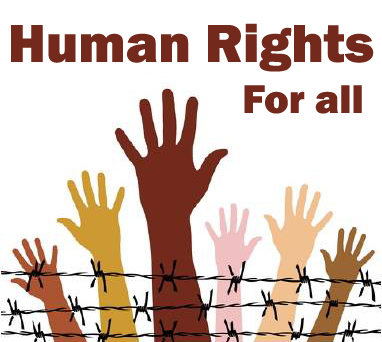Deadline: 15 September 2017
Conectas Human Rights and the Fund for Global Human Rights invites contributions in the form of articles, case studies and institutional reflections – with preference given to activist voices from the Global South – for the 26th edition of the Sur International Journal on Human Rights, to be published in December 2017. The special edition will focus on the responses to the crackdown on civil society currently seen – to different degrees – around the world.
The objective of the Sur International Journal on Human Rights, published by Conectas, is to influence the global human rights agenda by producing, fostering and disseminating innovative research and ideas, primarily from the Global South, on human rights practice.
Sur is an open access journal, edited in English, Spanish and Portuguese and has an online (sur.conectas.org/en) and print readership of over 20,000 people in more than 100 countries.
Conectas and the Fund for Global Human Rights (FGHR) aim to address this imbalance and produce a special issue of the Sur – International Journal on Human Rights.
Reclaiming civic space: Insights and learnings from and for activists
Reports and research on the global crackdown on civil society (often referred to as the “shrinking” or “closing” of civic space) tend to focus on how it is manifested and its impacts – for example, details about yet another set of laws that restrict the financing of non-governmental organisations or the unlawful arrest of an individual or group of human rights activists.
There is, however, still too little documented about how civil society – and more specifically the human rights movement – is responding to this trend. There is even less material that assesses the effectiveness of these responses and which might inform future strategies by human rights activists and international actors. Moreover, most reports, studies, articles, blogs etc. are the work of international actors studying national contexts or groups/activists as objects of research. Where activists themselves produce analysis, it is often to provide data to inform these reports, or to feature as case studies in them.
Program Areas
Contributions are sought primarily from the Global South, that fall within the following topic areas:
- What are the root causes of restrictions on civic space?
- How is the human rights movement reclaiming civic space?
- How to sustain the human rights movement in the face of these threats?
How to Apply
Sur Journal is accepting contributions (in Portuguese, English or Spanish) between 7,000 – 20,000 characters including spaces in the following formats:
- Essays
- In-depth analysis of any of the questions raised above, with a preference for essays dealing with issues of transnational significance and/or bringing a comparative perspective from different countries.
- Case Studies
- Texts on the implementation of civil society mobilisation, advocacy strategies, counter narratives and other responses and which analyse the impact of these strategies.
- Institutional Reflections
- Shorter pieces about sustainability, security and well-being, and alternative methods of funding in the face of the crackdown on civil society.
Contributions must be sent via email in electronically (Microsoft Word file) in a prescribed format.
Eligible Countries: Afghanistan, Algeria, American Samoa, Angola, Anguilla, Antarctica, Antigua and Barbuda, Argentina, Armenia, Aruba, Azerbaijan, Bahamas, Bahrain, Bangladesh, Barbados, Belarus, Belize, Benin, Bhutan, Bolivia, Botswana, Bouvet Island, Brazil, British Indian Ocean Territory, Brunei Darussalam, Burkina Faso, Burundi, Cambodia, Cameroon, Cape Verde, Cayman Islands, Central African Republic, Chad, Chile, China, Christmas Island, Cocos (Keeling) Islands, Colombia, Comoros, Congo, Congo, The Democratic Republic of the, Cook Islands, Costa Rica, Côte D’Ivoire, Cuba, Djibouti, Dominica, Dominican Republic, Ecuador, Egypt, El Salvador, Equatorial Guinea, Eritrea, Ethiopia, Falkland Islands (Malvinas), Fiji, French Guiana, French Polynesia, French Southern Territories, Gabon, Gambia, Georgia, Ghana, Grenada, Guadeloupe, Guam, Guatemala, Guinea, Guinea-Bissau, Guyana, Haiti, Heard Island and McDonald Islands, Honduras, India, Indonesia, Iran, Islamic Republic of, Iraq, Jamaica, Jordan, Kazakhstan, Kenya, Kiribati, Korea, Democratic People’s Republic of, Kuwait, Kyrgyzstan, Lao People’s Democratic Republic, Lebanon, Lesotho, Liberia, Libya, Madagascar, Malawi, Malaysia, Maldives, Mali, Marshall Islands, Martinique, Mauritania, Mauritius, Mayotte, Mexico, Micronesia, Federated States of, Mongolia, Montserrat, Morocco, Mozambique, Myanmar, Namibia, Nauru, Nepal, Netherlands Antilles, New Caledonia, Nicaragua, Niger, Nigeria, Niue, Norfolk Island, Northern Mariana Islands, Oman, Pakistan, Palau, Palestinian Territory, Panama, Papua New Guinea, Paraguay, Peru, Philippines, Pitcairn Islands, Puerto Rico, Qatar, Reunion, Rwanda, Saint Barthelemy, Saint Helena, Saint Kitts and Nevis, Saint Lucia, Saint Martin, Saint Vincent and the Grenadines, Samoa, Sao Tome and Principe, Saudi Arabia, Senegal, Seychelles, Sierra Leone, Solomon Islands, Somalia, South Africa, South Georgia and the South Sandwich Islands, South Sudan, Sri Lanka, Sudan, Suriname, Swaziland, Syrian Arab Republic, Tajikistan, Tanzania, United Republic of, Thailand, Timor-Leste, Togo, Trinidad and Tobago, Tunisia, Turkmenistan, Turks and Caicos Islands, Tuvalu, Uganda, Ukraine, United Arab Emirates, United States Minor Outlying Islands, Uruguay, Uzbekistan, Vanuatu, Venezuela, Vietnam, Virgin Islands, British, Virgin Islands, U.S., Wallis and Futuna, Western Sahara, Yemen, Zambia, Zimbabwe.
For more information, please visit Call for Papers.
